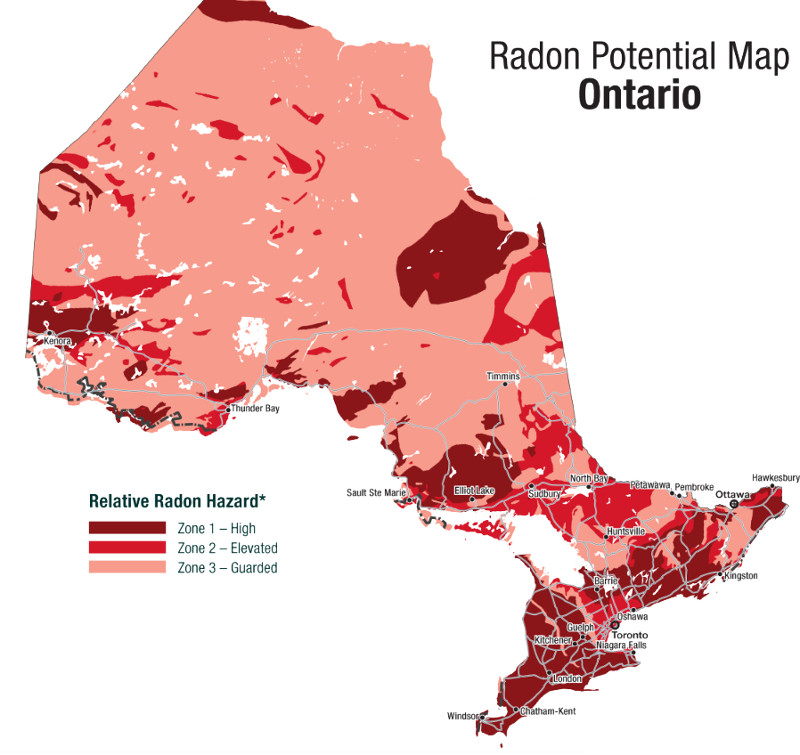Grey Bruce Public Health is encouraging residents to begin testing their homes for radon this November, which is Radon Action Month in Canada.
November is an ideal time of year to test for the invisible, odourless, and tasteless radioactive gas as Health Canada recommends measuring radon for at least three months, ideally during home-heating season.
“Radon can build up in homes of any size and any age. And because you can’t see, smell, or taste radon, testing is the only way to know if this gas is in your home,” said Andrew Barton, Senior Public Health Manager at GBPH.
Prolonged exposure to elevated levels of radon in the home may lead to lung cancer. Radon is second only to smoking as the leading cause of lung cancer in Canadians, accounting for about 16% of all cases annually.
Radon is released into the environment when uranium – found in soil, rock, or water – breaks down.
When radon escapes into the outdoor air, it is diluted and not a cause for concern. However, radon can seep into homes through cracks in the foundation, gaps around pipes or drains or any other opening where the house contacts the ground. Radon can easily build up in Canadian homes that are well-sealed for the winter weather.
There are two ways residents can test for radon in their homes. They can buy a do-it-yourself radon test kit or hire a radon measurement professional to test their home.
More information on radon testing is available at www.takeactiononradon.ca/test-for-radon and on Grey Bruce Public Health’s dedicated Radon webpage.












